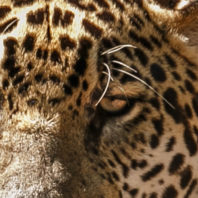
To catch a cat
Trekking through one of the largest unexplored rainforests in the world, La Mosquitia in Honduras, Travis King set up traps last spring to catch jaguars—or whatever other animal came into range of the cameras.
King, an environmental science graduate student at Washington State University, was one of twelve biologists conducting the first biological survey of the area known as La Ciudad Blanca or the Lost City of the Monkey God, astounding ruins first identified in 2012.
It was already familiar work for King, who has used remote-sensing camera traps and other methods to identify the behavior and distribution of elusive big cats … » More …










